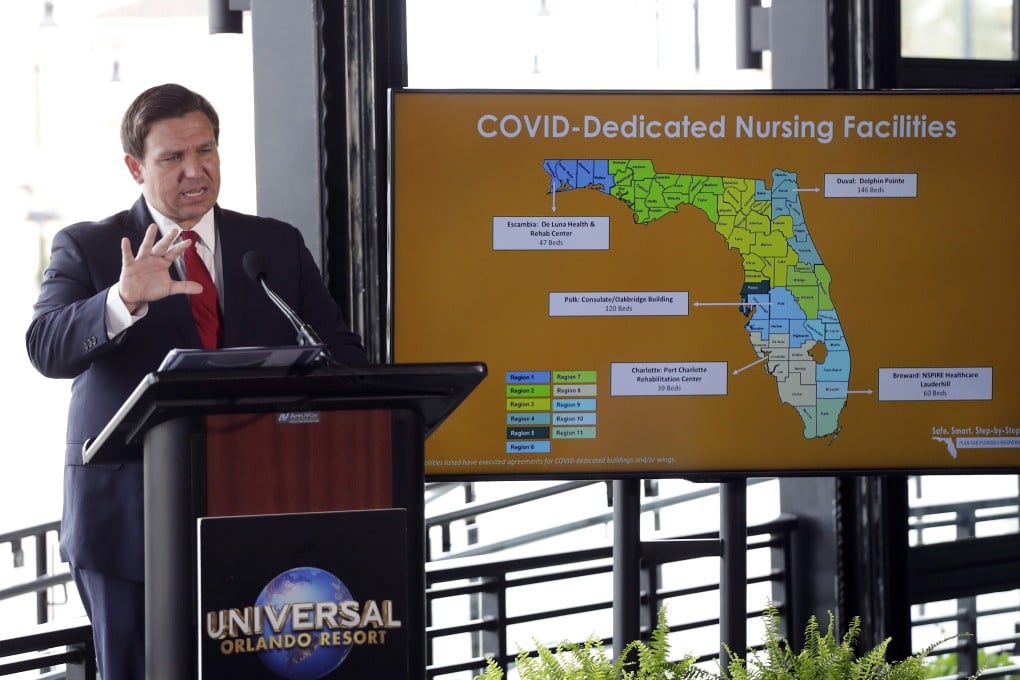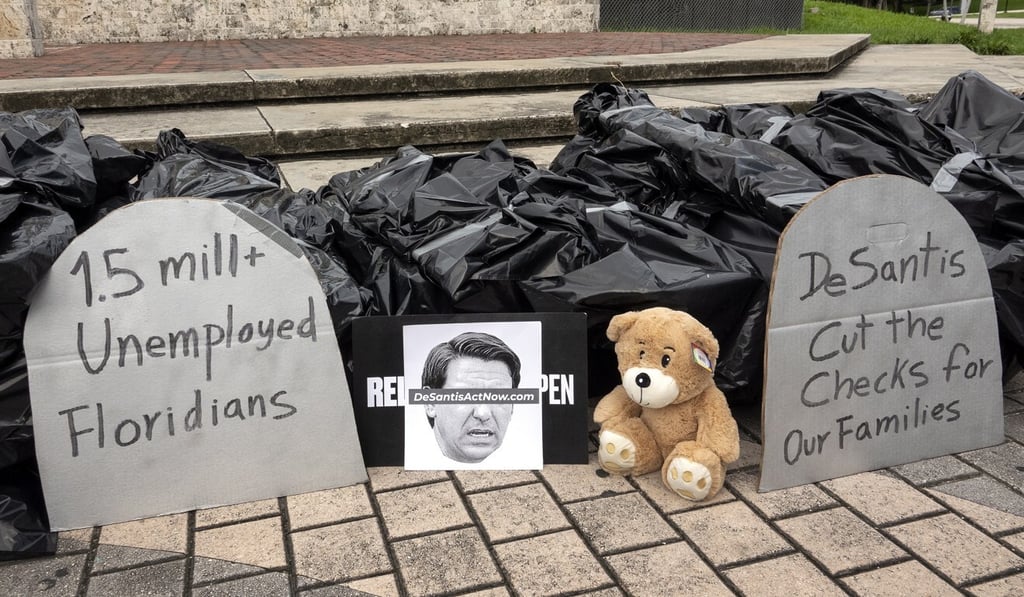Politico | With Trump’s re-election hopes on the line, Florida’s DeSantis defies critics as coronavirus spreads
- In state crucial to securing president’s second term, Republican governor aims to shift focus from pandemic to economic recovery
- Florida’s cases are rising to record levels and percentage of positive tests has been steadily climbing since state fully implemented first phase of reopening

This story is published in a content partnership with POLITICO. It was originally reported by Marc Caputo on politico.com on June 16, 2020
Florida Governor Ron DeSantis proudly welcomed the Republican National Convention to Jacksonville last week. On Sunday, he marked the official return of audience-attended professional sports in Florida by waving the green flag to start the Nascar Cup Series Dixie Vodka 400 race at Homestead-Miami Speedway.
In between, he urged schools to reopen next fall.
DeSantis’ moves to return his state to normal have been as aggressive as any governor, but there is one inconvenient fact: Florida’s coronavirus cases are rising to record levels and the percentage of positive tests has been steadily climbing ever since the state fully implemented the first phase of its reopening on May 18.

How the first-term governor – and ally to President Donald Trump – squares those economic and public health imperatives resonates far outside his state’s borders.
Trump’s re-election hinges on carrying Florida, where DeSantis’ messaging is right in line with the president’s re-election campaign. Both want to shift the focus of the political discussion from the pandemic to economic recovery, making the success or failure of the Republican governor’s balancing act a key indicator of Trump’s fortunes this fall.